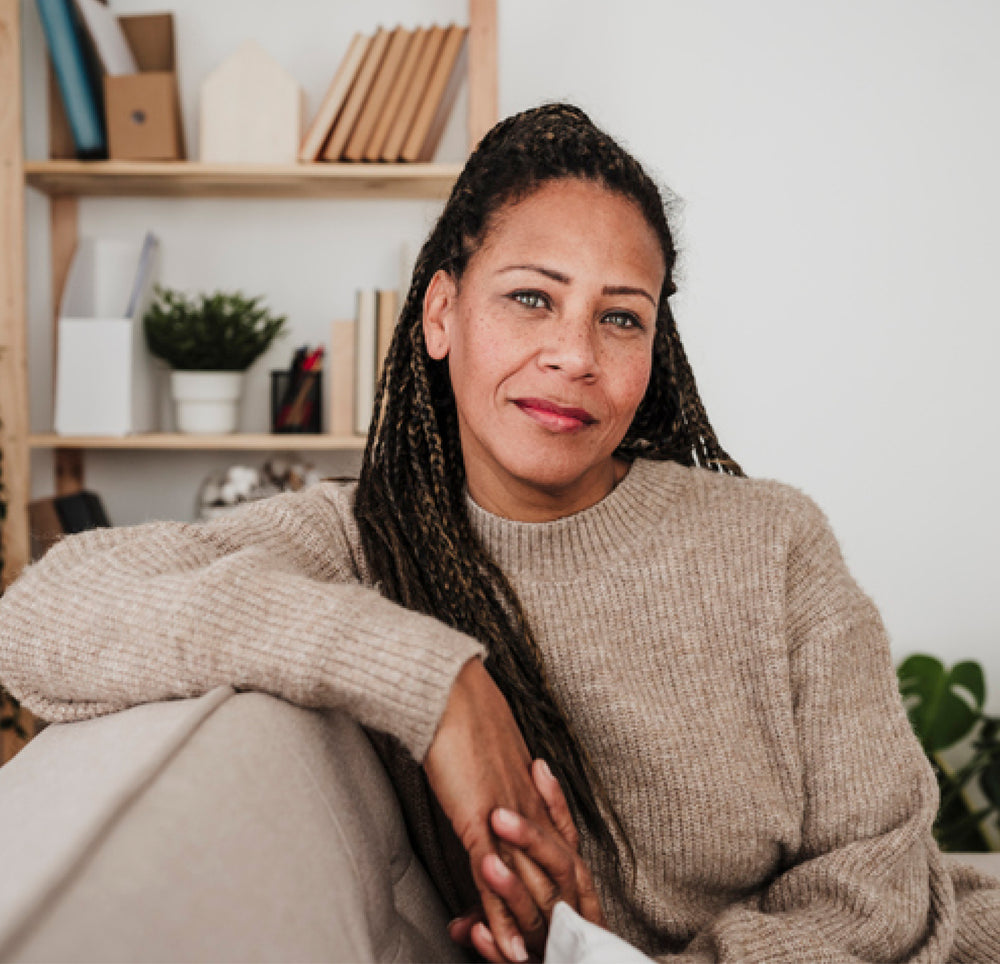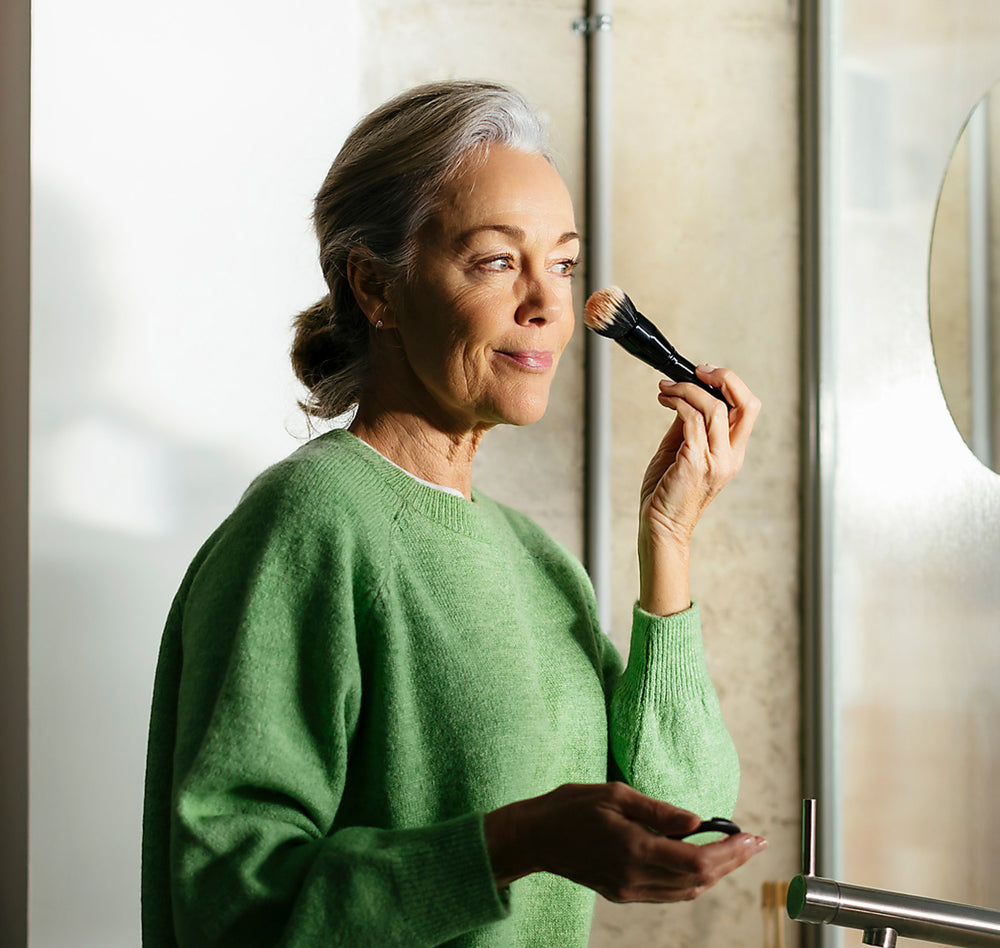Each year, we set out to learn more about the current
state of menopause. This year, we surveyed 2,000 women, ages 40-64, who are experiencing perimenopause and menopause symptoms.
Our research revealed a startling lack of menopause education across the population.
The State of Menopause, 2023
Education is key to a more empowering future for menopause care.
This year's topics:- Misconceptions & Misdiagnoses
- The Surprising Severity of Symptoms
- Trends of Self-Education & Empowerment
- The Need for More Education for All

The missing piece in menopause care?
Education.
Answers from 2,000 women experiencing perimenopause and menopause symptoms revealed education continues to fall short.
In this void of information, misconceptions and misdiagnoses abound, which creates an unnecessary gap between women first experiencing symptoms and finally finding solutions.
The good news: women are taking matters into their own hands. When they educate and advocate for themselves, the results are truly life changing.
With more than one billion women expected to be menopausal by 20251, it’s essential to shine a light on the realities of menopause to create a better future of care.
Of women experiencing or treating menopause symptoms...
88%are unaware of how early menopause symptoms can start.
69%don’t recognize the initial symptoms of menopause.
79%think the best way to navigate menopause is to educate themselves, rather than rely solely on the healthcare system.
90%who treated and resolved a menopause symptom say it made a difference in their quality of life.
65%wish they would have treated their symptoms sooner.
The symptoms of menopause start much
earlier than women thought.
This year’s survey revealed that 88% of women underestimate how early menopause symptoms can strike.

Fact vs. fiction
Over 1/2 believe menopause symptoms mostly affect women over 50.
The truth: Symptoms can start as early as your mid-40s.
1 in 3 think all women will experience the same symptoms.
The truth: There are currently 34 recognized symptoms of menopause, and every woman's experience is different.
79% don’t know the technical definition of menopause.
The truth: Menopause is a single date in time—the 24 hour period that marks a full year since your last menstrual cycle.
The truth: Symptoms can start as early as your mid-40s.
The truth: There are currently 34 recognized symptoms of menopause, and every woman's experience is different.
The truth: Menopause is a single date in time—the 24 hour period that marks a full year since your last menstrual cycle.
These misconceptions cause a majority of women to initially misdiagnose their symptoms.
-
All women experience menopause, eventually. But when it happens to them individually, it’s hard to recognize.
-
69% of women initially misdiagnosed their menopause symptoms or mistook them for something else.
-
The bigger issue: when women don’t understand the cause of their symptoms, it becomes much harder—and takes much longer—to find a solution.
The good news: women are taking their education
into their own hands.
Today, women aren’t waiting around for answers, with 79% of women believing that the best way to
navigate menopause is to educate themselves.
They’re finding solutions via their own research.
When asked where women have gotten the MOST information around menopause:

But 65% of women who found a solution, wished they had found it earlier.
It starts with better education.
Women agree that better menopause education is crucial to creating greater access to solutions and support.

Women and healthcare providers agree—current medical training for menopause is falling short.
Today, a lack of menopause education among the medical community has left many patients feeling unsupported.
Healthcare providers admit that the standard medical training for menopause care is inadequate.
83.8% of OB/GYN residents believe more menopause educational resources were needed in their own residency programs.2
52% of general practitioners reported they felt they were not offered enough training to advise women with menopause symptoms. Some stated that they did not remember being taught the subject at all.3
By empowering healthcare providers with more comprehensive education, patients can
get the information and support they need to achieve better outcomes.
And that’s something we can all get behind.

The more we know,
the more we can do.
For a life stage that occurs in over half the population, menopause remains widely misunderstood. A dearth of education has left women to navigate their own care—creating unnecessary suffering and inadequate support.
But we know better. And now it’s time to do better to improve the current state of menopause.
—
Read our surveys from previous years:
State of Menopause, 2021
State of Menopause, 2022
Bonafide is a company dedicated to pioneering safe, naturally powerful solutions for menopause. It currently invests over $2M a year in the clinical research and development of safe, hormone-free solutions to support perimenopausal and menopausal women's physical, emotional, and sexual health. Additionally, they focus on providing quality, medically reviewed educational resources to better inform and prepare women for this transitional time.
2. https://www.contemporaryobgyn.net/view/survey-shows-menopause-curriculums-lacking-in-residency-programs
3. https://theconversation.com/menopausal-women-often-turn-to-doctors-who-know-little-about-the-symptoms-heres-what-needs-to-change-207450